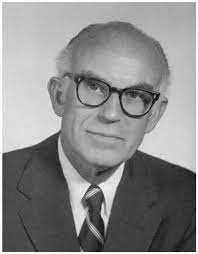Nisbet, Robert A.

Bio: (1913-1996) American sociologist and historian. Robert Nisbet received his doctorate in sociology from the University of California, Berkeley, where he later taught; he has taught at the University of California at Riverside and the Universities of Arizona and Columbia. Nisbet is one of the most influential historians of sociological and political thought. He is also the most important representative of sociological conservatism in the second half of the twentieth century in the United States. He also studied the sociology of deviant behavior.
In the book Conservatism: Dream and Reality (1986), Nisbet finds the roots of conservatism in reaction to the French Revolution, and especially in Edmund Burke's book Reflections on the Revolution in France (1790). Nisbet believes that conservatism is an alternative to the liberal utilitarianism of Jeremy Bentham. According to Nisbet, utilitarianism is "mechanical" and "soulless" and is based on pure reason. He believes that people need a different way of thinking that is based more on emotions, experience, and pure logic. In addition, Nisbet defends the concept of prejudice, because prejudice gives people inner wisdom that precedes the intellect. Prejudice allows us to act in moments when it is necessary to make split second decisions. Nisbet opposes any form of redistribution of wealth, including social benefits and affirmative action programs. An attempt to demolish the existing hierarchical structures in society would be an attack on cultural and psychological diversity in society. According to Nisbet, individualism, which is represented by modern social science, denies people the need to belong to the community and leaves them to fight alone against the central government of the state. In addition, Nisbet sees militarization, centralization, bureaucratization, and conformism as threats to political and personal freedoms. In his book Sociology as an Art Form (1976), he states that sociology requires the same kind of creative imagination as other artistic expressions.
Fields of research
Art Bureaucracy Community Conservative Ideology Crime Freedom History Ideology Individualism Politics Prejudice Revolutions Science Social Policy StateTheoretical approaches
Conservatism, SocialMain works
The Quest for Community: A Study in the Ethics of Order and Freedom (1953);
Contemporary Social Problems: An Introduction to the Sociology of Deviant Behaviour and Social Disorganization (1961);
The Sociological Tradition (1966);
Sociology as an Art Form (1971);
A History of Sociological Analysis (1978);
The History of the Idea of Progress (1980);
Prejudices: A Philosophical Dictionary (1983);
Conservatism: Dream and Reality (1986);
The Present Age: Progress and Anarchy in Modern America (1988).

